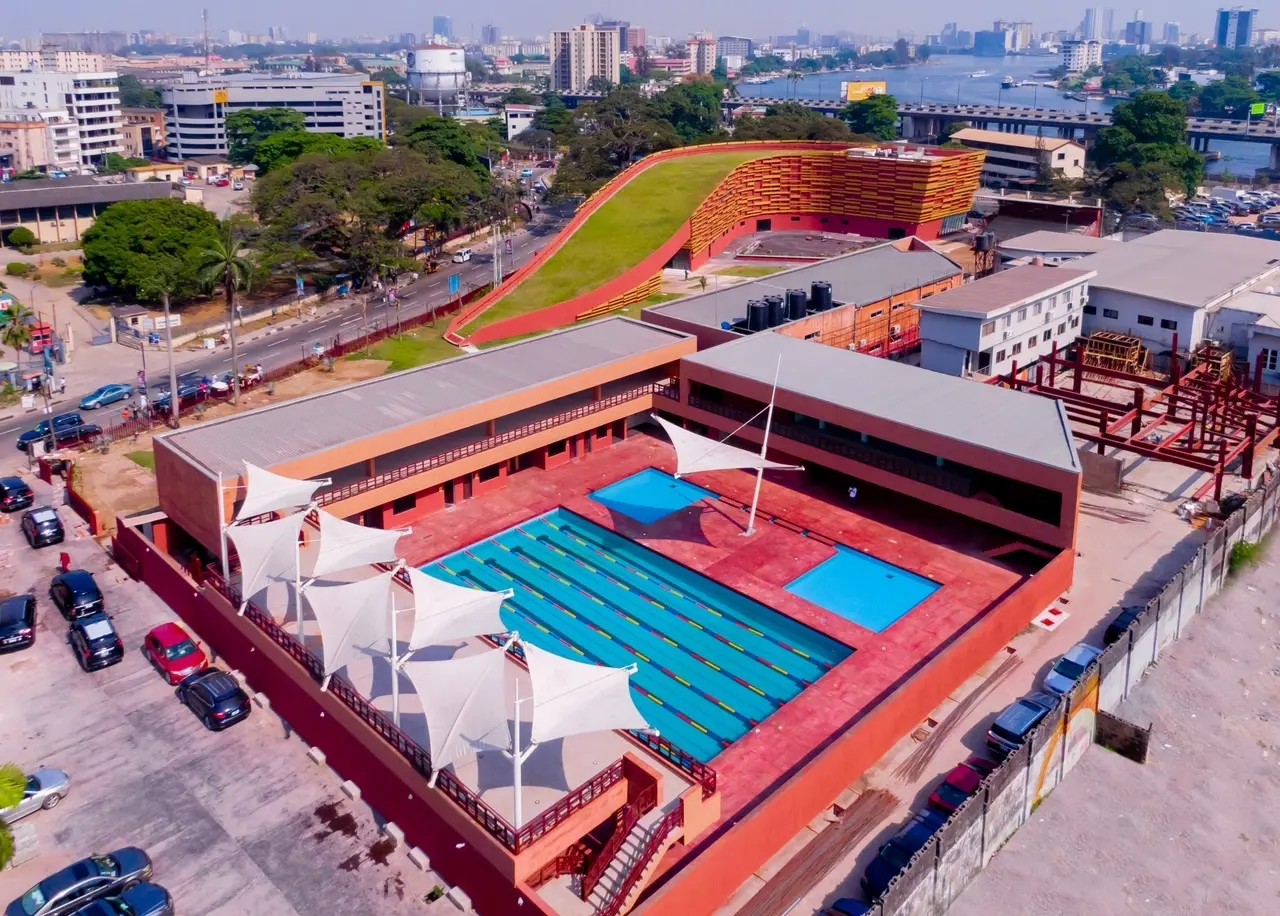
JOHN RANDLE LIVES ON, AS CENTRE DEEPEND LAGOS CULTURAL SOUL
By Akeem Lasisi
For decades Onikan has been one of the major areas that give Lagos a cultural soul. For, when many people think Lagos, they primarily think commerce. They think about population and a social life that is often ahead of what obtains in many other places. But beyond its multitude and socio-economic opportunities, Lagos is a haven of tourism and culture, signposted by its baronial waters and multiple monuments.
At Onikan, you find the National Museum, the MUSON Centre, the Island Club, Yoruba Tennis Club, City Mall and more, all nestling amid other related centres and headquarters of many institutions. Yet, Onikan’s enviable fame as the seat of the cultural Lagos has received a phenomenal boost with the coming on stream of the John Randle Centre for Yoruba Culture and History. A great asset symbolising the Babajide Sanwo-Olu government’s commitment to the development of tourism, culture and entertainment, it will be commissioned on Tuesday 24 January 2023 by President Muhammadu Buhari, alongside other milestone projects such as the Blue Rail Line, the Imota Rice Mill and the Lekki Deep Seaport. The grand Fourth Mainland Bridge will also be flagged off.
The architectural masterpiece dedicated to the regeneration of Yoruba heritage is indeed the new sprawling edifice redefining tourism and culture in the city, sitting magnificently opposite the National Museum. Although Sanwo-Olu inherited the dream, he has transformed it beyond the initial scales – proving that he is a believer in politics without bitterness and infrastructural continuity. He said he particularly developed special interest in the centre to restore its lost glory, noting that it would be second to none in the documentation of Yoruba history and culture. He inaugurated a seven-member Board of Trustees for the centre in July 2021, with himself as Chairman.
The Governor puts the essence of the facility thus: “The John Randle Centre is the first of many initiatives aimed at the preservation of the heritage of the Yoruba through the celebration and preservation of history and culture, the regeneration of decades old public green space, public recreation facilities and the restoration of civic pride. Onikan will be the catalyst for a vibrant and tourist-friendly quarter in the heart of Lagos Island.
“Our administration is placing tourism development at the centre of our economic planning, and I will personally be the chairman of the Board to revive tourism and engender cultural renaissance in Lagos. The Board will have four government representatives and three professionals from the private sector.
“The John Randle Centre, originally built in 1928, used to serve as a hub for cultural tourism, recreation and entertainment. Let me state at this point that I take up this opportunity to serve as the Chairman of the Board of Trustees of the J.K. Randle Centre for Yoruba Culture and History with a sense of responsibility and I assure stakeholders in the Arts, Culture and Tourism ecosystem that we will do everything to ensure that the Centre become a reference point, not only for Yoruba culture and arts, but also brings back the old glory of Lagos culture.
“We are already in discussions with arts and culture organisations and professionals, including national museums, The British Museum and private art collectors on the availability of compendiums and collection of works documenting the rich history of the Yoruba people”.
Damilare Ojewole, a representative of Studio Imagine Simply Architecture, which handled the project, gives the tourist attractions in the edifice as including swimming pools, restaurants, museum with artefacts, outdoor birthday party arena and tour stands.
“Other segments of the edifice are offices, seminar rooms, library, orientation theatre and more. We have swimming pools for children and adults with standardised measurement and half of the Olympic size”, he adds.
Ojewole notes that the state government has also put the physically challenged individuals into consideration, with the plan to install the disable lift, which would aid their movements around the Centre.
History of the centre
John Randle, a prominent Lagosian and first West African to qualify as a medical doctor in the United Kingdom, had built a public swimming pool at 1928 in King George V Park, which later became the Love Garden – a much-loved recreational area. This grand gesture was inspired by the refusal of the British colonial office to build a pool for Lagosians to learn how to swim. On completion of the pool and garden, Dr Randle handed over the facilities to the Lagos Town Council with a maintenance purse to ensure its upkeep. It is the old arena that has now become the internationally rated cultural centre.
Designed by SI.SA Architects, the centre forms part of an urban regeneration project at the heart of Lagos Island, a part of the city steeped in rich history. The project seeks to restore a public swimming pool built in 1928 with updated facilities, and to create a centrepiece community building with a 1,000 square-metre exhibition gallery that tells the story of Yoruba history and culture through a journey from its origins, the present day, to the future. Both interventions are situated in a landscaped park, an homage to the 18th-century King George V Park, which was built over in the last century.
![]()
